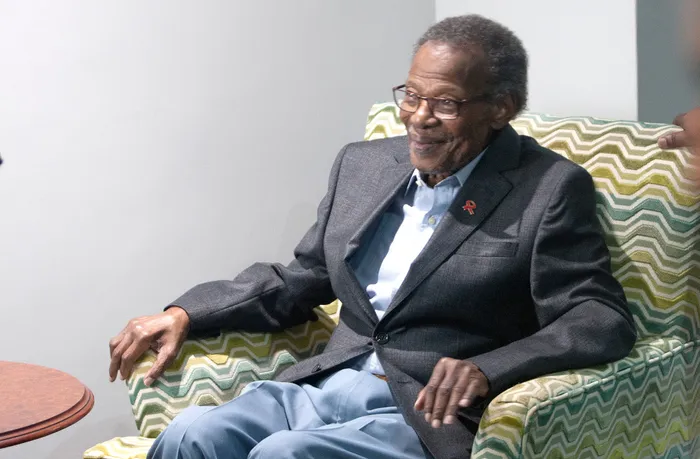Chief Buthelezi sees nothing wrong with clergy’s involvement in Zulu Kings’ coronation

Prince Mangosuthu Buthelezi during a press conference at Protea Hotel. Picture: Khaya Ngwenya/African News Agency (ANA)
Johannesburg - On Tuesday, IFP leader and traditional prime minister of KZN, chief Mangosuthu Buthelezi, in his capacity as advisor to King Misuzulu, held a press briefing where he explained that there was nothing wrong with some of the rituals that were undertaken by the King on Saturday during his coronation at Moses Mabhida stadium.
This briefing came after a social media outcry over some of the rituals that were witnessed on the weekend.
Some complaints include the king being touched on his head and prayed for by Anglican Archbishop Thabo Makgoba. Buthelezi said the king, who is a Christian himself, consented to the rituals before the ceremony, adding that he saw nothing wrong with any of them.
This past Saturday, South Africa and the international community witnessed the crowning of the ninth King of the Zulu Nation and him being recognised by the President of the Republic of South Africa, Cyril Ramaphosa, who handed over the certificate of appointment to King Misuzulu, something that Buthelezi calls a "historic moment that has never been seen before in our country."
"When the late King Goodwill Zwelithini ka-Bhekuzulu was installed in 1973, South Africa was under apartheid, and our King was considered merely a Paramount Chief.
“The same had been the case under King Cyprian Bhekuzulu, under King Solomon and under King Dinuzulu. Since King Cetshwayo’s defeat in the Anglo-Zulu War, our Kings have not been recognised.
“Thus, the recognition of our monarch as the King of the Zulu Nation by the country’s Head of State was one of the most significant moments in our Nation’s history. It was cause for great celebration and required a ceremony befitting the occasion," he said.
Buthelezi said as the Traditional Prime Minister to the Zulu Monarch and Nation, he played his role in ensuring that the ceremony was a success.
"As we were installing a Christian King, who worships at the Nazareth Baptist Church, I felt it important to have a Christian element to the ceremony. Accordingly, I approached His Majesty and sought his guidance on this, and he requested that I appeal to the Head of the Anglican Church of Southern Africa, the Archbishop of Cape Town, to perform a religious service," Buthelezi added.
However, some members from the Shembe/ Nazareth community complained that they were not recognised and accommodated to actively take part in the installation of their very own King.
The Nazareth community has since taken a decision to conduct their own ceremony for the King at the Enyokeni Royal Palace later this month.
Buthelezi said King Goodwill Zwelithini, too, was a member of the Christian community under the Anglican church and that the royal family before him, too, has been part of the church.
"Indeed, the Royal Family has been part of the Anglican Church since my grandfather, King Dinuzulu’s exile on the Island of St Helena, where he became an Anglican. Even the Regent, Prince Mshiyeni, during the interregnum after King Solomon’s passing, received his baptism certificate from the Bishop of Zululand," Buthelezi added.
He said nothing sinister was imposed upon the King, and the accusation that this amounted to a recolonisation of the kingdom was nothing but an attempt at trying to misconstrue the situation.
"I want to emphasise this point because a very distressing accusation has been made by the Indonsa ye-Sizwe Think Tank, under the names of the Reverend Professor Musa Xulu, Dr Makhosi Khoza and Dr Themba Fakazi, claiming that the role played by the Anglican Church, in the handing over ceremony, amounts to an attempt at “re-colonisation”.
"But I do not regret asking the Archbishop to perform this service, and I believe that it was done in a superbly dignified manner. Through the liturgy, the Archbishop did what the prophets of old did in the times of King David, even using the oil of anointing. This was wholly appropriate for a Christian King," Buthelezi said.
The Star
Related Topics: